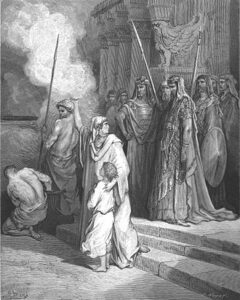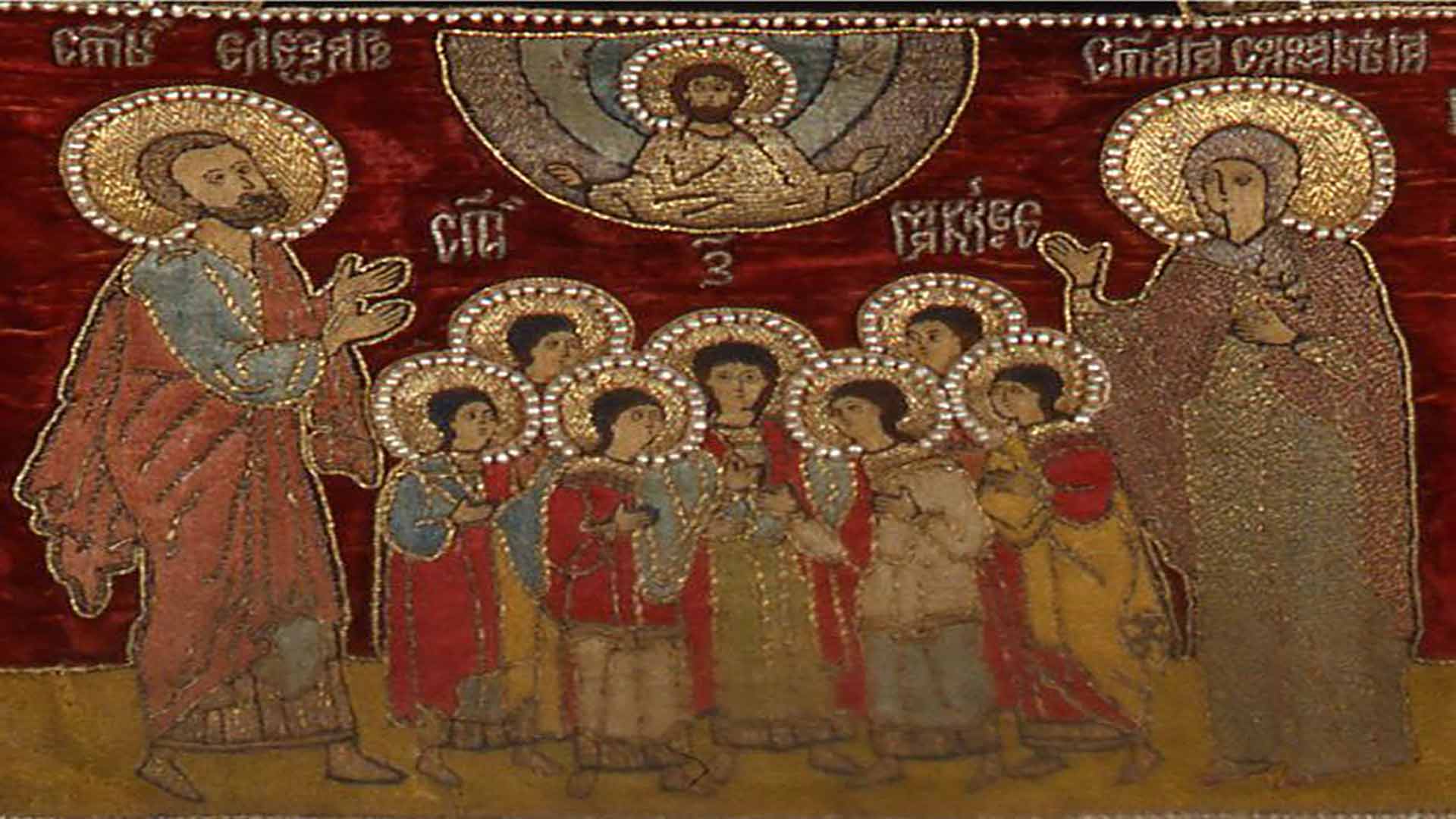Steadfast in Christ
When the Greek emperors ruling over Palestine wished to impose their gods on Israel, monotheistic Israel vehemently rejected their overtures. The First Reading’s (2 Macc 7: 1-2, 9-14) description of the bid to convert seven brothers (now the Saints Maccabees) and their mother (a foreshadowing of our Blessed Mother) [1] to idolatry is pregnant with meaning. One of the siblings says in no uncertain terms that they are “ready to die rather than transgress the laws of our fathers.” If the earthly king kills them, the King of the Universe will raise them up to an “everlasting renewal of life.” They regard sufferings as nothing because they regard God as their everything; and they do so with the hope of their resurrection to life!
How many of us do readily sacrifice vain human bonds and put God first in our life? On the contrary, we often take God for granted while eager to satisfy fellow humans, especially if there are material benefits at stake. We readily bend over backwards for fear of displeasing or antagonising friends and relatives, and glibly say ‘God will understand’. Such opportunism is most displeasing to the Lord for, taking Him for granted could eventually lead to denying Him, Jesus Christ, the God of Life and Resurrection.
On the other hand, believing in the living God involves a wholehearted acceptance of the revealed message. The Gospel (Lk 20: 27-38) underlines that “He is not God of the dead, but of the living; for all live to Him.” Even this may remain as words, words, mere words, if we do not open our minds and hearts to Him. In the world today, instead of subjecting ourselves to God and His teaching, alas, how many bend before human authority, misleading though their teachings may be; and how casually they do so – as though God does not exist!

While Maccabees speaks of the apparent riddle of the seven brothers, the Sadducees mentioned in the Gospel present a teaser. A woman marries seven brothers in succession and is childless: whose wife will she be in Heaven? It is to be noted that, as against the Scribes and the Pharisees, the Sadducees (who belonged to the higher echelons of the Jewish priesthood) did not believe in the resurrection; hence their question. But then, Jesus takes the opportunity to educate them on the resurrection and eternal life: they are both for real, yet it is not a material reality like the one lived on earth; the resurrected will be akin to angels!
Resurrection and Eternal Life may well be among the most difficult realities for the human mind to accept. In our positivist age, many wish to be known as men and women of science rather than of faith. In fact, there is no antagonism between religion and science, but there are many who wish to drive a wedge between the two. To every doubting Thomas, therefore, St Paul’s prayer in 2 Thess 2: 16 – 3: 5 is: “May the Lord direct your hearts to the love of God and to the steadfastness of Christ.”
[1] Although unnamed in 2 Maccabees, the mother is known variously as Hannah, Miriam, Solomonia, and Shmouni in the Catholic Church.
Banner: The Holy Seven Maccabees, their mother Solomonia, and their teacher Eleazar (Russian veil icon, 1525)
